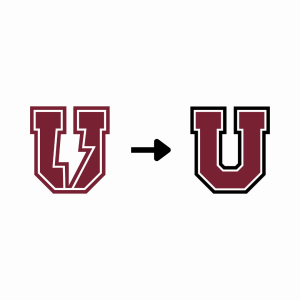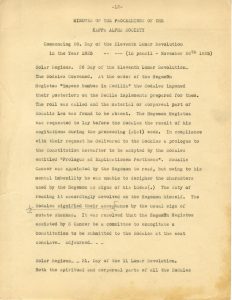I joined the cult of programming and you should too
January 23, 2020
Computers and software are the way of the future. Every aspect of human society has been improved by the advent of the computer—travel (by air or car), healthcare, construction, dissemination of knowledge—the list really just goes on.
But all too often, software’s role in this great improvement is overlooked.
You might say that if the computer is the great galleon that carries human society inexorably forward, over that horizon and into a brave new world, then the software is the captain at the helm of that grand ship.
Poetics aside, this term, I’m taking a couple of courses that teach me how to use software, and I’m really glad that I’m in them.
As a freshman, I absolutely hated programming in Intro to Engineering, and I didn’t see how I would ever use it, not that I could, anyways.
And yet here I am four years later, realizing that computer software has made my life so much easier in college.
If I didn’t have JMP, a data analysis software, to allow me to easily visualize and understand my thesis data, I would have spent 100 times more of my time and effort on analysis.
Imagine having to write papers with a typewriter, where if you make a typo, you have to start again on that page—thanks to Microsoft Word, that’s not a problem. The article you’re reading? Written on Microsoft Word. The paper you’re holding, the pictures, the text, everything was laid out on a computer software before it was sent to be printed. I can’t imagine how much more time would go into creating a newspaper manually.
So I think you get the point: software is ubiquitous and unspeakably useful.
The classes that I’m taking this term have made me realize just how much of a skill software use and programming are and I think that it would be interesting for the school to consider making these sorts of courses a part of the common curriculum.
For example, I’m learning to code using R, and open-source software designed for data analysis.
Because it’s open-source, everyone can download it and use it for free, which is a great asset, because that means that after the course finishes and I eventually leave college, I will still have the software. JMP, on the other hand, would cost me hundreds of dollars to use post-college.
Being open-source also means that people can collaborate and write code to perform functions, and then share them to the rest of the world, where anyone can then download that code and use it in their own coding.
Being able to use software seems like a great way to sell yourself to an employer, no matter your discipline. History, anthropology, sociology, political science—all of these disciplines have the capacity to use softwares and data analytics to improve.
One day, maybe our kids will be programming in primary school. It sounds absurd, but there was once a day when it was absurd to teach all kids to read, too.
Marketability of oneself is a bit of a theme in the class, too.
The professor had everyone introduce themselves and say why they were taking the course on the first day and one person said something along the lines of, “I’m political science and I’m realizing I don’t have any practical skills, so I’m taking this course to get some.” The reasoning behind this response was surprisingly common.
Now, I think that says a lot about the way that our capitalist society views education—not worth anything unless it’s able to produce capital, but that is an article for another day, isn’t it?
Anyways, I’ve rambled on long enough, but I’ll end with this: consider taking a software or programming course. You might just enjoy it.






